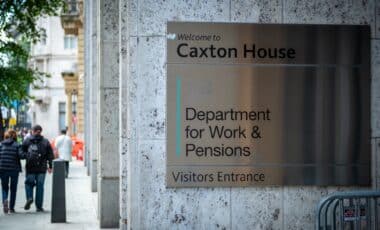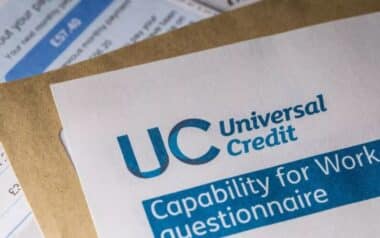A new report has revealed a startling comparison: unemployed individuals on sickness benefits will receive up to £2,500 more annually than those earning the national minimum wage.
According to research by the Centre for Social Justice (CSJ), a Universal Credit claimant on sickness benefits and additional housing and health allowances could earn £25,000 in 2026—more than the £22,500 of a full-time worker on the minimum wage after tax.
The analysis highlights how the welfare system, designed to support those unable to work due to health conditions, has become increasingly generous, surpassing the earnings of low-paid workers. The findings prompt questions about the balance between adequate support and the potential disincentives for individuals to return to work.
Sickness benefits vs minimum wage earnings
The CSJ’s study underscores a growing discrepancy between welfare payments and the earnings of full-time workers on the national minimum wage.
According to the research, an unemployed individual receiving sickness benefits, housing support, and Personal Independence Payments (PIP) for health conditions could be entitled to £25,000 in the coming year.
In comparison, a full-time worker on the national minimum wage is expected to earn £22,500 after deductions for income tax and National Insurance in 2026/27. This has sparked concerns about the financial viability of the welfare system, particularly with rising claims for sickness benefits linked to mental health issues.
Critics argue that such generous benefits may undermine the incentive for individuals to seek employment, while others stress the importance of safeguarding vulnerable people unable to work due to health conditions.
The CSJ believes that tightening eligibility for benefits, particularly mental health-related claims, could help curb rising welfare costs without leaving vulnerable individuals unsupported.
Government’s approach to welfare reform
The findings come in the wake of recent welfare policy adjustments, particularly concerning the treatment of disability entitlements. Sir Keir Starmer’s decision to revise his Welfare Bill, which initially proposed £5 billion in cuts to disability benefits, signals the political challenges of balancing support for vulnerable groups while reducing welfare spending.
The government, for its part, has acknowledged the flaws within the current welfare system and is taking steps to reform it.
A government spokesman stated, “We inherited a broken social security system that is failing people on all accounts.”
The current approach focuses on ensuring that those who can work are supported into employment, while the most vulnerable continue to receive a safety net.
The government is also investing £2.2 billion over the next four years into employment support programs, including initiatives like Connect to Work, which aim to help disabled individuals and those with health conditions return to the workforce.
While these efforts are aimed at promoting employment, there are concerns that welfare spending, particularly sickness benefits, is on a path that could challenge the UK’s long-term financial sustainability.
According to the Office for Budget Responsibility, sickness benefit payments are projected to reach £100 billion by the end of the decade, driven by rising claims related to mental health.









